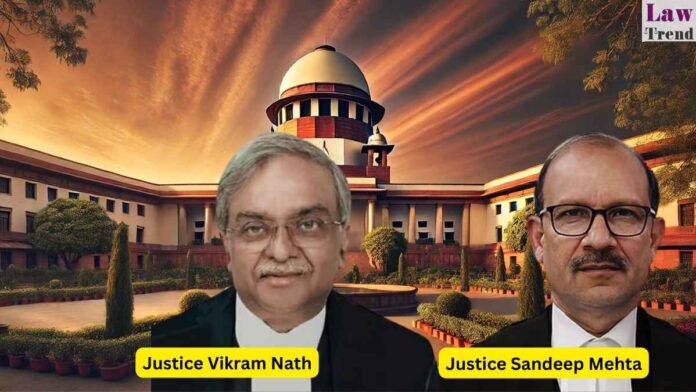The Supreme Court on Wednesday referred a significant procedural question to a larger three-judge bench: whether it is mandatory for a litigant to first approach a Sessions Court for anticipatory bail, or if they have the “choice” to move the High Court directly.
The matter was before a bench of Justices Vikram Nath and Sandeep Mehta. “This matter requires to be heard by a three-judge bench,” the bench observed, directing that the case be posted for hearing once the larger bench is constituted.
The apex court is being assisted in the matter by senior advocate Siddharth Luthra, who was previously appointed as an amicus curiae.
Background of the Issue
The reference to a larger bench stems from observations made by the Supreme Court on September 8, when it took note of a “regular practice” within the Kerala High Court. The court observed that the High Court was entertaining anticipatory bail applications directly, without litigants first exhausting their remedy at the Sessions Court.
The issue arose while the bench was hearing a plea filed by two men challenging a Kerala High Court order that had rejected their application for anticipatory bail. The Supreme Court noted that in the instant case, the petitioners had directly moved the High Court for relief.
Court’s Previous Observations
During the September 8 hearing, the bench had explicitly questioned this practice. “One issue which in bothering us is, in the Kerala High Court there seems to be a regular practice that the high court entertains the anticipatory bail applications directly without the litigant approaching the sessions court. Why is that so?” the bench had asked.
The court contrasted this with the procedure in other states, observing, “It doesn’t happen in any other state. Only in the Kerala High Court, we have noticed that regularly applications (for anticipatory bail) are being directly entertained.”
The bench emphasized the statutory hierarchy, stating that one was provided “in the erstwhile Code of Criminal Procedure and the Bharatiya Nagarik Suraksha Sanhita (BNSS), 2023.” Section 482 of the BNSS deals with directions for granting bail to a person apprehending arrest.
The apex court expressed concern that when the High Court entertains such applications directly, it “might result in proper facts not being placed on record which otherwise would have come before the sessions court.”
The Question to be Decided
Highlighting the need for a definitive ruling, the bench had framed the legal question it intended to settle: “We are inclined to consider this aspect and decide the issue as to whether the option to approach the high court would be at the choice of the party or it should be mandatory that the accused should first approach the sessions court.”
In its September order, the Supreme Court had issued notice on this specific procedural aspect to the Kerala High Court through its registrar general. Given the importance of the question, the two-judge bench on Wednesday formally referred the matter for an authoritative decision by a three-judge bench.




